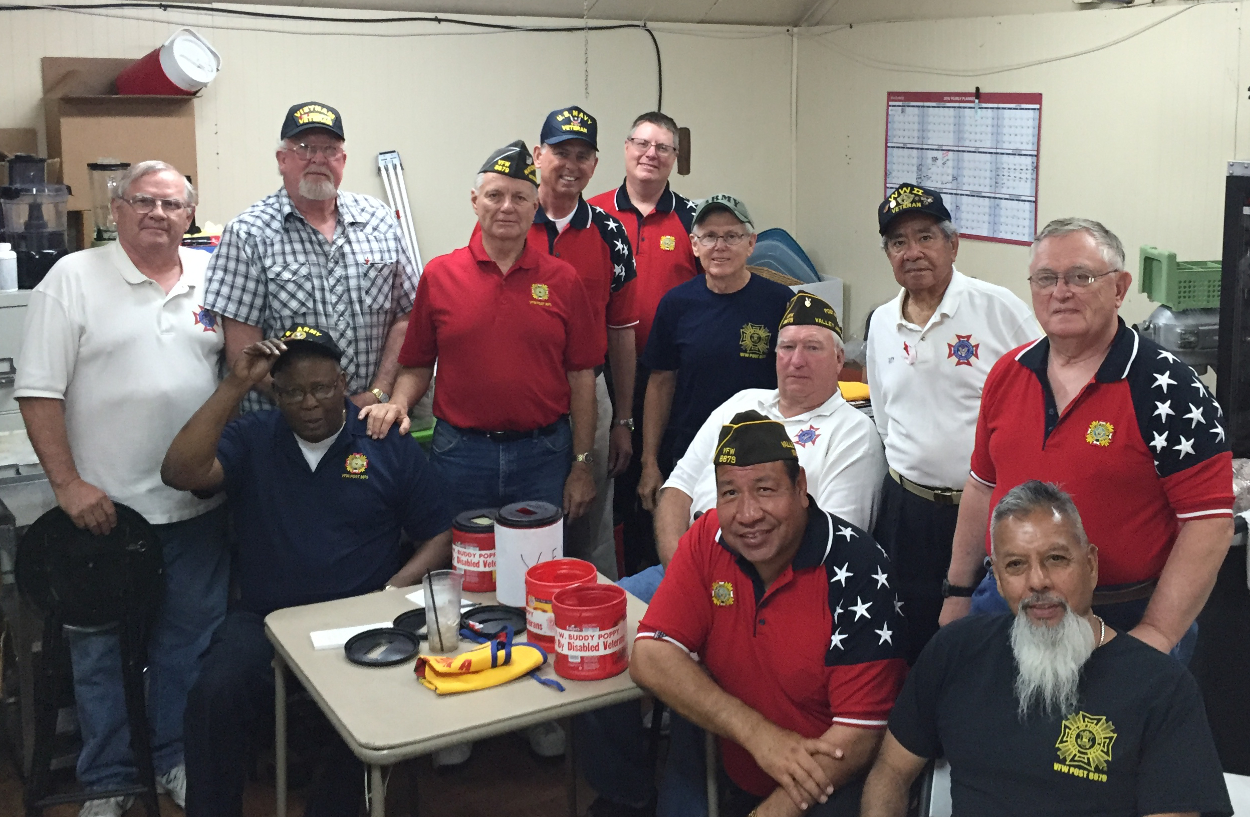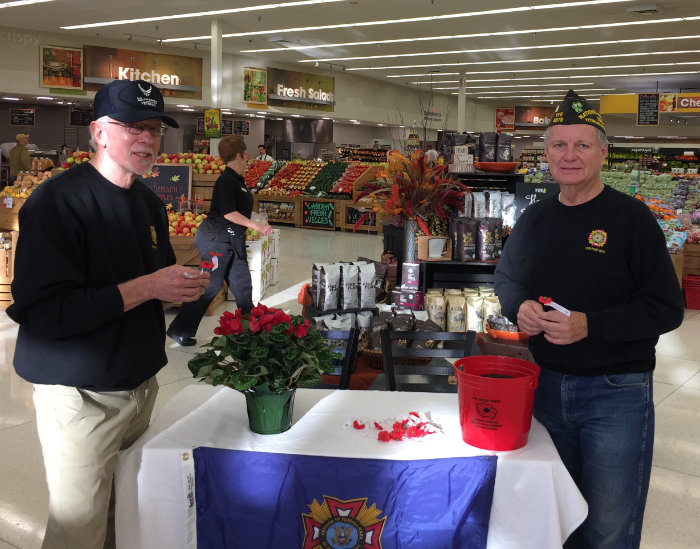
VFW Post 8879 continues the
tradition of distributing Buddy Poppies to residents in West Des Moines.
The program provides multiple benefits to the veterans and to the community. The hospitalized veterans who make the flowers are able to earn a small wage, which helps to supplement their incomes and makes them feel more self-sufficient. The physical and mental activity provides many therapeutic benefits as well. The poppy also reminds the community of the past sacrifices and continuing needs of our veterans. The poppy has become a nationally known and recognized symbol of sacrifice and is worn to honor the men and women who served and died for their country in all wars.

Team members at Hy-Vee on 51st & Mills Civic.

A brief history of the
artificial poppy:
In the World War I
battlefields of Belgium, poppies grew wild amid the ravaged landscape. How
could such a pretty little flower grow wild while surrounded by death and
destruction? The overturned soils of battle enabled the poppy seeds to be
covered, thus allowing them to grow and to forever serve as a reminder of the
bloodshed during that and future wars.
The poppy movement was
inspired by the poem "In Flanders Fields" written by Lieutenant
Colonel John McCrae of the Canadian forces in 1915 before the United States
entered World War I. Selling replicas of the original Flanders' poppy
originated in some of the allied countries immediately after the Armistice.
Madam Guerin, who was
recognized as "the poppy lady from France", sought and received the
cooperation of the Veterans of Foreign Wars of the U.S. early in 1922, after
the Franco-American Children's League was dissolved. The VFW conducted a poppy
sale prior to Memorial Day, 1922, using only poppies that were made in France.
In the 1923 poppy sale, due to the difficulty and delay in getting poppies from
France, the VFW made use of a surplus of French poppies that were on hand and
the balance was provided by a firm in New York City manufacturing artificial
flowers.
The Veterans of Foreign Wars
of the United States was the first veteran organization to promote a nationally
organized campaign for the annual distribution of poppies assembled by American
disabled and needy veterans. In 1924, the VFW patented the name "Buddy
Poppy" for their version of the artificial flower. Buddy Poppy proceeds
represents no profit to any VFW unit. All the money contributed by the public
for Buddy Poppies is used in the cause of veteran’s welfare, or for the well
being of their needy dependents and the orphans of veterans.
Following the 1924 sale, the
VFW believed it would stimulate local sales if the poppies they used were
assembled by disabled veterans in hospitals within their own jurisdiction. The
1924 encampment of the VFW at Atlantic City granted this privilege, under
the provision that all poppies would be produced according to specifications
set forth by the National Buddy Poppy Committee, and that all poppies would be assembled
by disabled veterans in government hospitals and by needy veterans in workshops
supervised by the VFW.
Around the same year, the
American Legion Auxiliary adopted the poppy as the organization's memorial
flower and pledged its use to benefit our servicemen and their families. Today,
the poppy continues to provide a financial and therapeutic benefit to those
hospitalized and disabled veterans who construct them, as well as benefiting
thousands of other veterans and their families.
Each poppy is made by veterans
for veterans in Auxiliary sponsored Poppy Shops that supplement physical and
psychological therapy needed by hospitalized and disabled veterans. The
Auxiliary provides the materials and the volunteers. The veteran makes the
poppy and is paid a small amount for each flower. For some it is their only
income.
No matter what the cost of
maintaining and supplying the Poppy Shops, the memorial poppy is never sold,
but given in exchange for a contribution.
